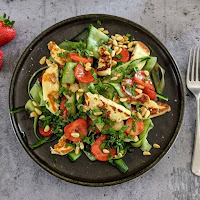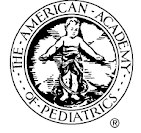Things to buy...
It is a long time since we have been able to sell some of our old books but we have just released a new batch. We now have on sale some old editions of books which we have replaced with newer stock.Please note that books are sold on a first-come, first-served basis and can only be reserved by making a card payment. Books can be posted using the internal post but at your own risk.
If you are interested in purchasing any items please come to the Illingworth Library, F Floor, Stephenson Wing, and ask at the counter. If you would like to see a list of the items available please see here - note there may be a delay in updating this list as items start to be sold.
Payment may be made in cash, card or contactless apps Please note that no book sales will be possible within 30 minutes of our closing times. Our opening hours are: Mon - Fri 8:45 until 17:00
Things about storytelling...
The emotional challenges experienced by parents of infants admitted to the neonatal unit are well documented. Stories based on parents’ narratives can be an effective method for nursing students to learn about parents’ experiences and develop empathy for them. This article in 'Nursing-children-and-young-people' explores this issue and concludes that: "Arts-based digital storytelling can convey the complexities of parents’ emotional experiences in the neonatal unit, so that nursing students are better equipped to understand and empathise with them".
Things about diabetes...
In the same journal a CPD article for nurses on 'Effective management of type 1 diabetes in children and young people'. Recommended reading to:
- enhancing your knowledge of what the optimal management and monitoring of type 1 diabetes entails
- improve your practice in providing support to children with type 1 diabetes and their families
- count towards revalidation as part of your 35 hours of CPD, or you may wish to write a reflective account
Things about trauma...
The Association for Child and Adolescent Mental Health (ACAMH) has released a podcast with Dr Stephanie Lewis about complex trauma and its contribution to psychopathology and cognitive deficits. Findings discussed include: young people exposed to complex trauma have more severe mental health problems than both those who haven’t been exposed to trauma and those who’ve been exposed to other types of trauma; and vulnerable young people are more likely to experience complex trauma, whereas non-complex trauma tends to occur more randomly in the population.
Listen to the podcast: ‘The contribution of complex trauma to psychopathology and cognitive deficits’ – In conversation Dr Stephanie Lewis
Things to attend (virtually)...Caldicott principles and information sharing: children and young people. This virtual online conference, organised by Healthcare Conferences UK, takes place on 28 September 2021. This conference will focus on developing your role in improving communication and information sharing around children and young people whilst ensuring patient confidentiality.
Things to report...
The NSPCC’s Childline service has launched the Report Remove tool with the Internet Watch Foundation (IWF). The tool will enable young people under the age of 18 to report a nude image or video of themselves that’s appeared online. The IWF will then review these reports and work to remove any content which breaks the law.
Things about cooking...
Cooking interventions have been criticised for their weak designs and 'kitchen sink' approach to content development. Currently, there is no scientific guidance for the inclusion of specific skills in children's cooking interventions. Therefore, a four step method was used to develop age-appropriate cooking skill recommendations based on relevant developmental motor skills. The article in 'Appetite' gives recommendations consisting of 32 skills, across five age categories: 2–3 years, 3–5 years, 5–7 years, 7–9 years, and 9+ years. The proposed recommendations will strengthen programme design by providing guidance for content development targeted at the correct age groups and can act as a guide to parents when including their children in cooking activities at home.Things about forced marriage and FGM...
The Home Office and the Foreign, Commonwealth & Development Office have published annual statistics on cases reported to the Forced Marriage Unit (FMU). Of the cases the FMU provided advice or support to in 2020, 15% involved victims who were aged 15 or under and 11% involved victims who were aged 16-17. These figures include cases related to forced genital mutilation (FGM), which often involves children.
Things to make...
With the school summer holidays approaching, if you want some inspiration for things you can cook with children then there are some nice ideas here...not just for children - the fruity filo parcels could be adapted for anyone and I think I may pop some of my red currants into something like this over the weekend. I would only add sugar if the fruit really needed it - certainly not for pears as in this recipe.
Photo from 'Babies and Young Children ' by our very own R S Illingworth.

















































